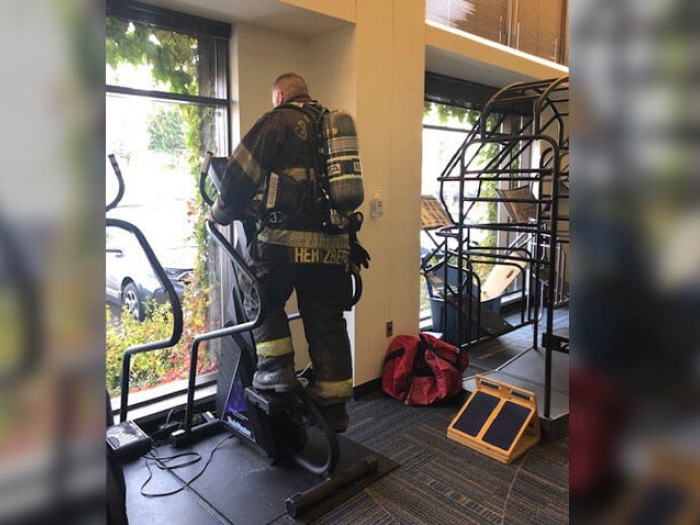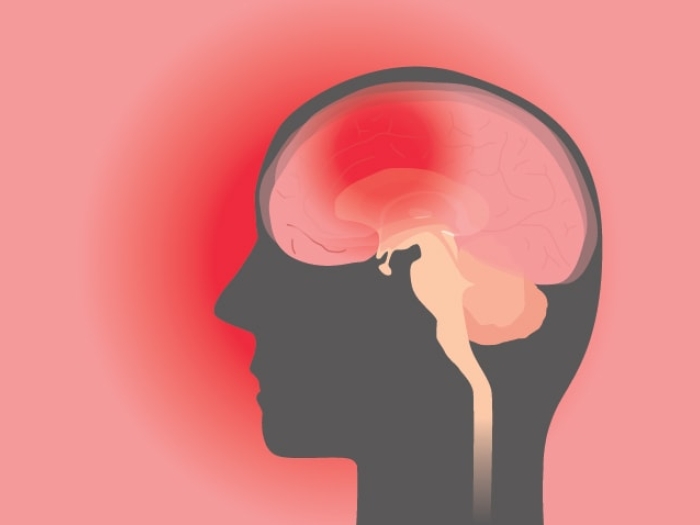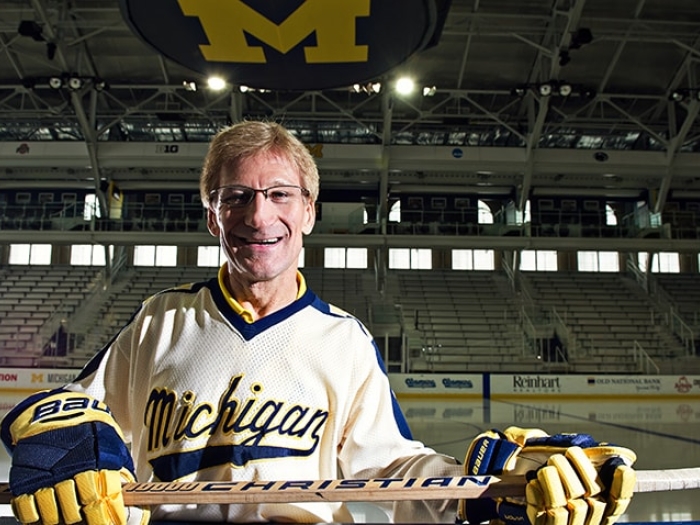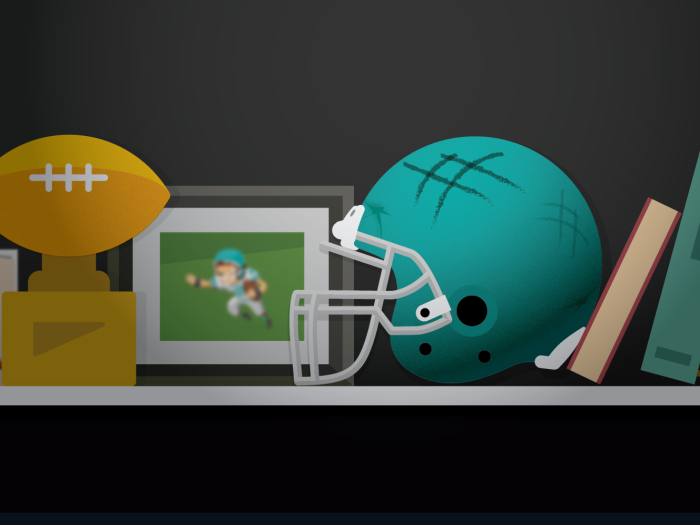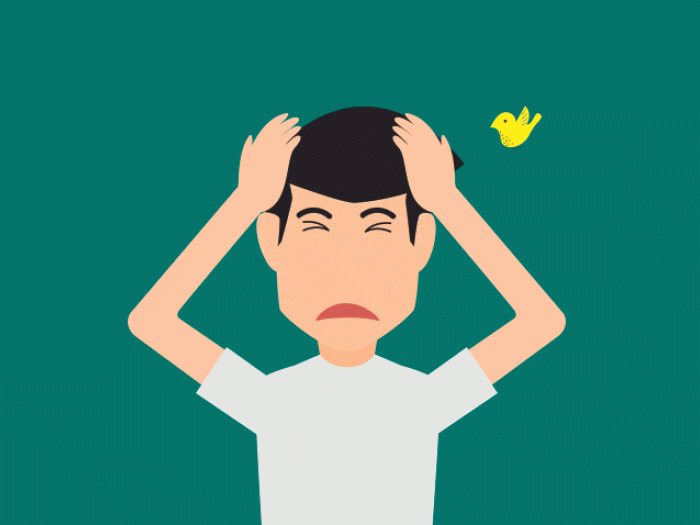Symptoms resulting from an on-the-ice hit left a collegiate hockey player struggling more than a year later. Then Michigan NeuroSport stepped in.
7:00 AM
Author |

When Yale senior hockey player Paige Decker took a hit on the ice in November 2013, she had no idea she was about to embark on a journey that would take her to more than 40 health care professionals in both the U.S. and Canada.
MORE FROM MICHIGAN: Subscribe to our weekly newsletter
"I had never had a concussion before," Decker says. "I ended up playing during the next two days with symptoms, which wasn't the best decision."
But if Decker ever questioned herself, she shouldn't. Many people play through the pain, even if the pain is concussion. Besides, she loved playing hockey for her Division I team.
Symptoms and setbacks
Two days after the hit, she finally visited a doctor.
Her physician said she would be better in two weeks, but that didn't happen. Her headaches became severe. She had vision issues and tinnitus, or ringing or buzzing in the ears.
Through sheer grit, she finished her senior year and even went on to a full-time consulting job. But her weekends were often spent in bed trying not to move because of the pain. She eventually had to take a leave of absence from her job and move back in with her parents, where she began to see more doctors and research her symptoms to find someone who could help her.
In January 2015, she had a terrible setback when one doctor gave her a treatment that brought on a form of reflex sympathetic dystrophy syndrome (RSD).
"So now, along with the very debilitating effects of my concussion, I've been dealing with excruciating bodily pain, involuntary twitching, noise sensitivity and many other symptoms," she said when she started treatment at the University of Michigan.
Finding a team approach
By chance, Decker met Kevin Pierce, a former professional snowboarder who had a traumatic brain injury in 2009. He put her in touch with an athlete who had been seen at U-M NeuroSport.
"I was very skeptical at first. I couldn't tell what made Michigan NeuroSport different from any other treatment that others offer. But then I learned about their team-based approach," Decker says.
She first visited the program, which brings together neurologists, physical medicine and rehabilitation doctors, physical therapists and more, in March 2015, nearly a year and a half after her initial injury.
"I liked the fact that they worked with each other," Decker says. "The previous doctors didn't coordinate with each other and didn't look at the big picture."
Another difference, Decker says, is that they listened.
"I suspected that my neck was the main cause of my symptoms," she says, and Miles Colwell, M.D., of physical medicine and rehabilitation confirmed this. "He is extremely thorough in his evaluation and has such an extensive understanding of the body."
It turned out that Decker's concussion had healed itself, but the structural damage from her neck was causing the problems.
'Hope again'
Colwell prescribed a series of manual therapy work, stretching and strengthening exercises, which helped ease Decker's headaches and RSD symptoms within a few months.
SEE ALSO: The Dangers of Untreated Concussions in Kids' Sports
"I made more progress in four months at Michigan NeuroSport than I made in two years. I couldn't be happier with my experience," says Decker. Within four months of starting treatment with Colwell and the NeuroSport team, she said she could "get out of bed, work part time and help out with coaching hockey" — a dramatic improvement.
She continued her treatment and recovery closer to home, which eventually led to two big goals signifying that she had her health back. She crossed the finish line of a half-marathon, and she completed a 2-mile jog with her dog.
Although the short jog might seem like a smaller achievement than running 13.1 miles, Decker wrote on her blog that it was a symbolic victory — "the end of so many years of deep struggle."
"It meant that despite all the pain, setbacks, uncertainty and hardship, I didn't let this crazy injury win," she wrote.
Back in the midst of her treatment in Ann Arbor, Decker said Michigan NeuroSport's model of treatment should be the norm for athletes instead of the exception.
"I'm not completely symptom-free," she says. "I still deal with some of my original symptoms, but they aren't anywhere near as bad as they were before.
"When you don't know how to get well, it's the worst feeling in the world. NeuroSport gave me hope again. They gave me structure to my recovery and a path that I believed in."
Want more information? Learn about Michigan NeuroSport here.

Explore a variety of health care news & stories by visiting the Health Lab home page for more articles.

Department of Communication at Michigan Medicine
Want top health & research news weekly? Sign up for Health Lab’s newsletters today!
